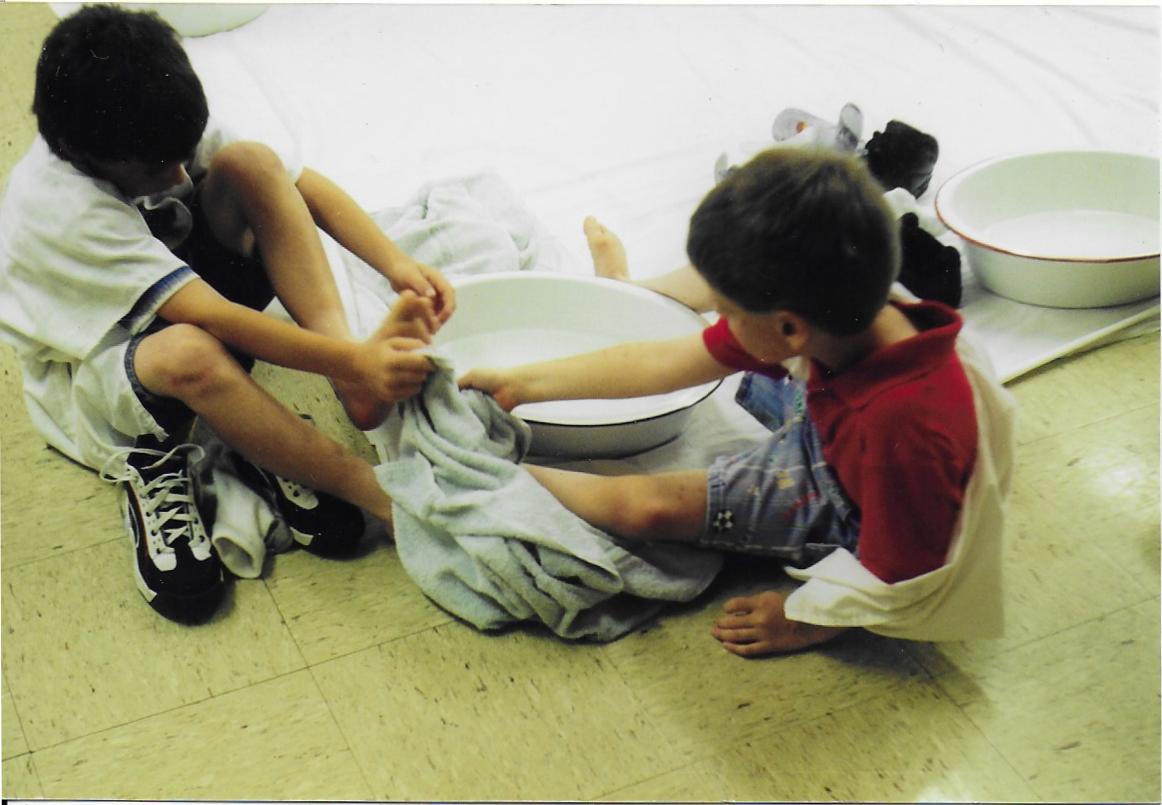Toward a Community of Belonging
Anabaptist Faith calls us to deeper community with each other. We believe that God created us as we are, and that we do not need to change in order to be worthy of fellowship with God. This applies to people with disabilities and mental illness, as well.
Explore the list of Anabaptist Values as they relate to disabilities and mental illness.
The gathered group of believers is the Body of Christ. Where two or three are gathered, Jesus is among us. The Holy Spirit gives us insight, strength, and comfort through the presence and voices of all who are gathered. Each member of the Body of Christ is essential. Those members who are deemed less important in the wider culture are considered more important in our community. People with disabilities who are marginalized should be centered, not only for their sake, but for the sake of the church. (1 Cor. 12; Eph. 4; Matt.18:20; John 14:26)
Each member of the Body of Christ is given gifts for the common good. The Body of Christ is more whole and functions more fully when all people, including people with disabilities, have their gifts honored and employed (1 Cor. 12; Eph. 4). When calling people to ministries, committees, or roles within the congregation, we should not overlook the gifts of people with disabilities and mental illness. Instead, we should give special attention to what they offer and find ways to use their gifts to benefit the community. Utilizing the gifts of people with disabilities or mental illness may require a shift in priorities: worship does not need to be perfect or on-key, prayers do not need to be intelligible to all who are listening, and we may not work efficiently. God meets us all in our imperfections, and the gifts of all members are necessary.
Just as every person has gifts, every person has needs. We care for one another in community, accommodating needs and giving support (John 13:34; Acts 2:42-46; 1 Cor. 12:26). Mutuality requires honoring the input of people with disabilities and mental illness; their understanding of their needs should guide the planning of accommodations and care.
Baptism is a marker of belonging to God and the church. Each person should be allowed to choose whether to be baptized, follow Jesus, and participate in the life of a congregation. Baptism should not be coerced, nor should it be withheld. Baptism is a beginning. We are all growing more fully into the commitment of our baptism, regardless of intellectual ability. If a person’s ability to choose is uncertain, their belonging to the church can be recognized and celebrated in other ways.
We are called to follow Jesus’ way of peace. We treat each other gently and with compassion. We do not use violence in our words, relationships, or actions. We take the necessary time and patience to prioritize peaceful relationships with one another.
When able-bodied members of the Christian community interact with people with disabilities and mental illness, we intentionally practice patience and peacemaking; we do not use our strength to overpower those whose bodies are smaller or weaker, and we do not coerce those with cognitive disabilities into thinking or believing what we think is best. We respect the physical and mental autonomy of the humans around us.
We believe there is value in living simply: using no more than we need, being straightforward in our speech, and practicing humility. No person is more valuable than another. We can always learn something from another person when we set aside our ego and pay attention. People with disabilities and mental illness have valuable knowledge and insight to share, and members of the Christian community who don’t have disabilities can learn from them if they take the time to listen, observe, and understand.
Serving others is a part of the Christian life for all people. Everyone can serve in some way. People with disabilities and mental illness can serve the community, and they experience belonging when allowed to serve others in a meaningful and accessible way.
Everybody can be great because anybody can serve. You don’t have to have a college degree to serve. You don’t have to make your subject and verb agree to serve. You only need a heart full of grace. A soul generated by love.
—Martin Luther King, Jr.
We peacefully participate in God’s redeeming work for justice in the world. We try to create communities that are accessible to all, creating a culture of belonging where needs are accommodated and gifts are employed. Our faith communities should be an example of what it means to live in right relationship with one another.
People with disabilities and mental illness live in a society that was not created for their bodies or brains, and they experience injustice daily. Our faith communities should be a place where people with disabilities and mental illness do not have to fight to be seen, heard, loved, and respected. We actively try to center their experiences and dismantle the systems and structures that keep them on the outskirts of our communities.
We offer each person the love of Christ. We do not try to fix people with disabilities or mental illness. We love them just the way that they are, just as God loves us. Love is the healing power of the church. The greatest gift is love.
Curious about general Anabaptist beliefs and practices? Explore the faith statements and events of the main Anabaptist groups in North America:


